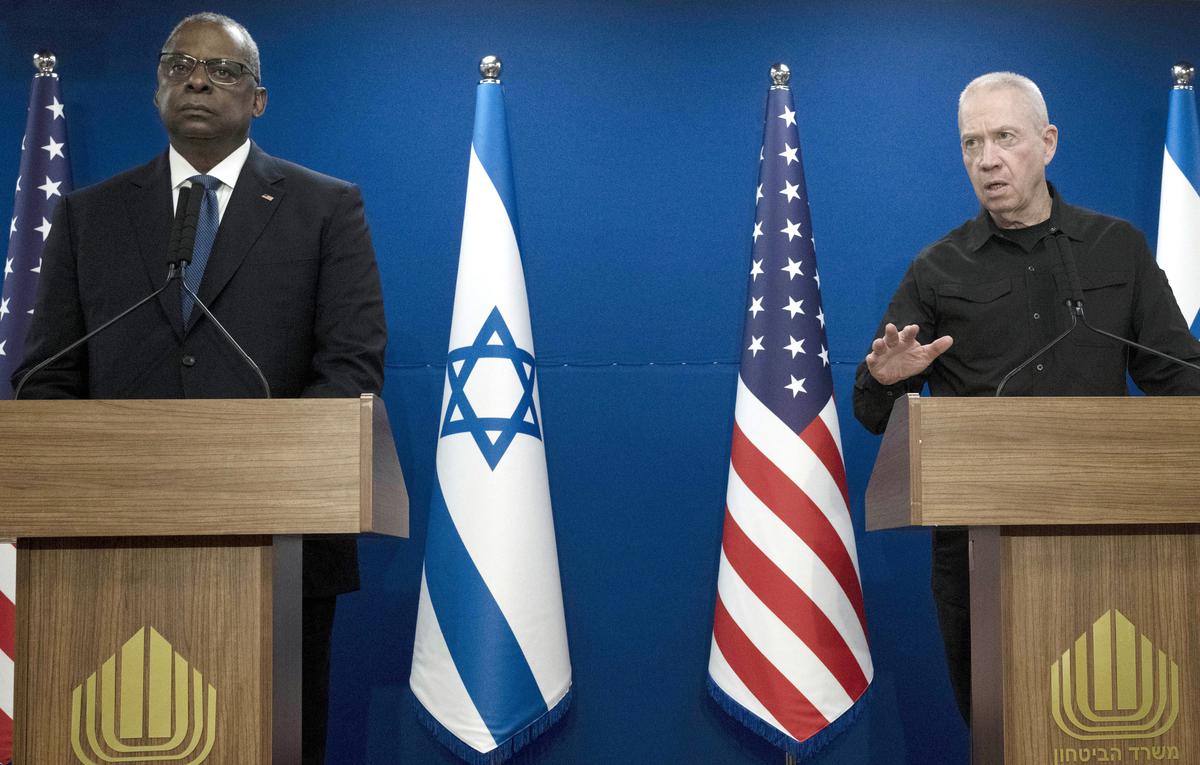The recent decision by Israeli Prime Minister Benjamin Netanyahu to cancel a delegation’s visit to the United States has intensified tensions between the two allies. The dispute arose following the US’s refusal to veto a UN Security Council resolution calling for an immediate ceasefire in Gaza during Ramzan. Israel, feeling abandoned by its long-standing ally, took the drastic step of calling off the visit, signaling a significant rift in diplomatic relations.
US Response to Netanyahu’s decision
The White House, responding to Netanyahu’s decision, expressed bewilderment and defended its stance on the UN resolution. White House National Security Communications Advisor John Kirby addressed the press, emphasizing that the resolution was non-binding and reiterated the US’s unwavering support for Israel’s security. Kirby dismissed claims of a policy shift and emphasized that the US retains the right to determine its foreign policy independently.
However, Israel strongly criticized the US’s abstention from vetoing the UN resolution, accusing the White House of abandoning its longstanding policy. Netanyahu’s office issued a statement condemning the US’s stance at the Security Council, labeling it as a departure from historical precedent. The decision to cancel the delegation’s visit was framed as a response to perceived changes in US policy, signaling Israel’s displeasure with its ally’s actions.
Implications and Next Steps
The cancellation of the delegation’s visit underscores the deepening divide between the US and Israel on key diplomatic issues, particularly regarding the conflict in Gaza. The rift poses significant implications for regional stability and US-Israel relations, which have traditionally been characterized by strong ties and mutual support.
Moving forward, both countries face the challenge of repairing strained relations and finding common ground on critical issues. Diplomatic efforts will be essential to address the underlying disagreements and rebuild trust between the two allies. Additionally, the episode underscores the complexities of navigating international diplomacy and managing diverging interests in the volatile Middle East region
In conclusion, Netanyahu’s decision to cancel the delegation’s visit reflects the escalating tensions between the US and Israel over the UN resolution dispute. The rift highlights broader challenges in diplomatic relations and underscores the need for constructive dialogue and cooperation to address regional conflicts and promote stability in the Middle East.
Impact on Regional Dynamics
The US-Israel rift has broader implications for regional dynamics in the Middle East. The conflict in Gaza has already strained relations between Israel and its neighbors, with Hamas launching rockets into Israeli territory and Israel responding with airstrikes. The US’s stance on the UN resolution further complicates efforts to de-escalate tensions and negotiate a ceasefire.
Moreover, the rift between the US and Israel could impact broader regional alliances and security arrangements. Israel has traditionally relied on US support to counter regional threats, including from Iran and its proxies. However, the current discord raises questions about the reliability of US backing and could prompt Israel to reassess its strategic partnerships in the region.
Global Diplomatic Ramifications
The US-Israel dispute also has global diplomatic ramifications, affecting international perceptions of US leadership and influence. The US’s refusal to veto the UN resolution has drawn criticism from some quarters, with critics accusing the Biden administration of undermining Israel’s security and emboldening its adversaries. The episode highlights the challenges of balancing competing interests in US foreign policy and managing alliances in a multipolar world.
Furthermore, the rift between the US and Israel could impact broader efforts to address regional conflicts and promote peace and stability. The US has traditionally played a leading role in Middle East diplomacy, mediating peace talks and brokering agreements between Israel and its neighbors. However, the current discord complicates US efforts to act as an impartial mediator and could hinder progress towards resolving longstanding conflicts in the region.
The US-Israel dispute also has domestic political implications for both countries. In Israel, Netanyahu’s decision to cancel the delegation’s visit could impact his standing ahead of upcoming elections. Netanyahu, facing corruption charges and a divided electorate, may seek to rally support by portraying himself as a strong leader willing to stand up to perceived threats to Israel’s security.
In the US, the Biden administration faces pressure from both sides of the political aisle over its handling of the UN resolution and its broader approach to Israel-Palestine relations. Republicans have criticized the administration for allegedly weakening US support for Israel, while progressive Democrats have called for a more even-handed approach that prioritizes Palestinian rights. The rift could exacerbate existing political divisions and complicate efforts to formulate a coherent US policy towards the Middle East.
Conclusion
n conclusion, the US-Israel dispute over the UN resolution has significant ramifications for regional dynamics, global diplomacy, and domestic politics. The rift underscores the complexities of navigating international relations in the Middle East and highlights the challenges of balancing competing interests and values. Moving forward, both countries will need to work to repair strained relations and find common ground on critical issues, while also addressing broader geopolitical challenges in the region.
